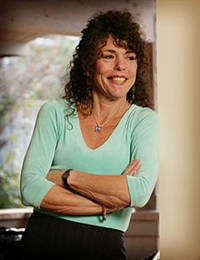EP17 Speech 16 - The Sex-Starved Marriage - Michele Weiner-Davis, LCSW
Credit Available - See Credits tab below.
Total Credits: 1 including 1 A.P.A.
- Average Rating:
- Not yet rated
- Topic Areas:
- Speeches | Couples Therapy | Sex and Sexuality | Marriage | Relationships
- Categories:
- Evolution of Psychotherapy | Evolution of Psychotherapy 2017 | Online Continuing Education | Pioneers in Couples and Family Therapy
- Faculty:
- Michele Weiner-Davis, LCSW
- Course Levels:
- Master Degree or Higher in Health-Related Field
- Duration:
- 46:30
- Format:
- Audio and Video
- Original Program Date:
- Dec 16, 2017
- License:
- Never Expires.
Description
Description: Explore the emotional toll of mismatched sexual desire, a common yet often unspoken challenge in long-term relationships. Drawing from her book The Sex-Starved Marriage and over three decades of clinical experience, Weiner-Davis outlines a collaborative, solution-focused model to restore physical and emotional closeness. With warmth and clarity, she offers practical strategies to foster empathy, increase connection, and reignite desire.
Syllabus Description: One out of every three couples struggles with mismatched sexual desire---a formula for marital disaster. When one spouse is sexually dissatisfied and the other is oblivious, unconcerned, or uncaring, sex isn't the only casualty; a sense of emotional connection can also disappear. Helping couples bridge the desire gap can be challenging when one spouse appears unmotivated or lacks empathy. This speech presents a collaborative model for partners to work together to turn around the decline in their sex lives and reignite their emotional connection.
Educational Objectives:
- Explain how to end the vicious cycle of refusing sex which leads to anger, less desire and more refusal.
- Demonstrate coaching both partners about specific ways to alter their approach to increase their partner's empathy and willingness to change.
*Sessions may be edited for content and to preserve confidentiality*
Credits
1 credits available.
The Milton H. Erickson Foundation, Inc. is approved by the American Psychological Association to sponsor continuing education for psychologists. The Milton H. Erickson Foundation, Inc. maintains responsibility for this program and its content.
THE MILTON H. ERICKSON FOUNDATION Policy on Disclosure
The Milton H. Erickson Foundation is proud of the conferences and other
educational opportunities it sponsors, taking care that the conduct of
these activities conforms to the standards and principles of behavioral
and medical sciences, thus ensuring balance, independence, objectivity
and scientific rigor in all individually sponsored or jointly sponsored educational
activities.
All faculty members participating in a sponsored activity, and those who
review and therefore are in control of content, are requested to disclose
any relevant financial relationship prior to the CME activity, including but
not limited to specific commercial interests, financial remuneration received
by faculty member or spouse, and what role or activity was performed
for this remuneration. If a conflict of interest exists as a result of
a financial relationship it will be resolved prior to the activity. A faculty
member will not be allowed to present if the conflict is not or cannot be
resolved.
Handouts
| Ericksonian Learning Snapshot (252 KB) | 2 Pages | Available after Purchase |
Faculty

Michele Weiner-Davis, LCSW Related Seminars and Products
Michele Weiner-Davis, LCSW is the Founder of The Divorce Busting Center in Boulder, Colorado. She is a popular TEDx speaker and the author of eight books including, Healing From Infidelity, and the bestselling Divorce Busting and The Sex-Starved Marriage. She is the recipient of several prestigious awards including the Outstanding Contribution to Marriage and Family Therapy Award from AAMFT.


